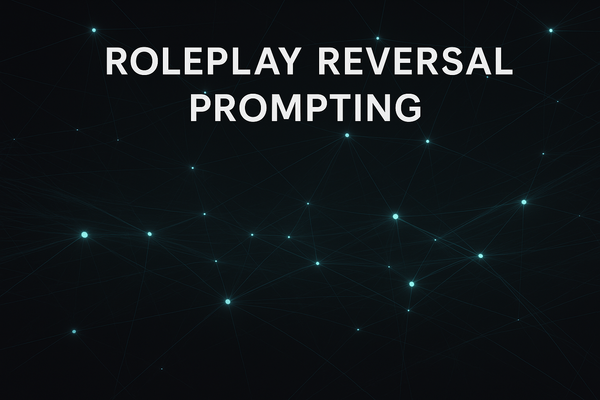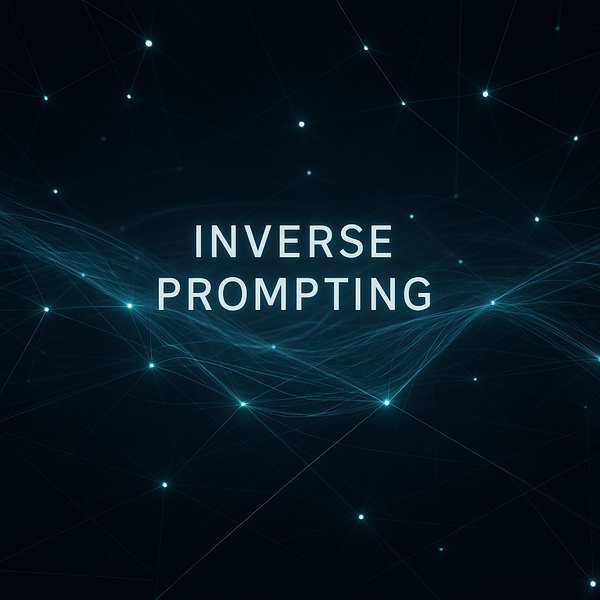Embedding-Rich Prompting
Embedding-rich prompting gives LLMs a memory — not by training, but by context injection.
Embedding-rich prompting gives LLMs a memory — not by training, but by context injection.

Roleplay reversal makes the AI the user. You become the machine. It’s one of the best ways to train, test, or simulate real-world usage — especially when you're prototyping LLM interfaces.

Inverse prompting is prompt forensics. It flips the script—working from outputs to plausible inputs. It’s essential for audit trails, meta-model training, and understanding how LLMs think in reverse.

These platforms offer a range of services, from natural language processing to computer vision and beyond. In this blog post, we'll dive deep into some of the most popular AI platforms, exploring their strengths, weaknesses, and unique features to help you make an informed decision.

Crafting and implementing a series of interconnected prompts to achieve complex outcomes and deeper insights.

Navigating the fine line between fostering creativity and imposing necessary constraints in AI-generated content.

The clarity and precision of prompts are foundational to maximizing the effectiveness of AI interactions.

The integration of contextual cues into AI prompts marks a significant leap forward in the evolution of AI interactions.

Emotional intelligence (EI) in AI interactions represents a frontier in creating more human-centric, empathetic responses from AI systems.

Storytelling is not just an art; it's a powerful tool for communication and engagement.

Feedback loops are essential in the realm of AI and machine learning, serving as the cornerstone for continuous improvement and refinement. This guide focuses on how to effectively implement and optimize these loops within your AI interactions, ensuring your prompts evolve and improve over time.

Diving into the art of question framing reveals a powerful tool in the interaction with AI technologies.

Context
Learn how to design effective learning prompts to accelerate knowledge acquisition and enhance memory retention. This guide includes a free tip on leveraging the Spaced Repetition Prompt to further enhance learning outcomes.

Prompt
Variables allow you to customize content for different users and contexts, which helps search engines understand your pages better and can improve rankings. They also help you scale content more efficiently.

Free
Context is the secret sauce that turns basic AI responses into meaningful conversations. It's the difference between a bot that says "It's raining" and one that advises "Take an umbrella, it's raining in your area today."

Free
Welcome to the world of "The Principle of Reciprocity in Prompt Design" – a fancy term, but stick with me. It's all about transforming your interaction with AI from a one-way street to a dynamic two-way dialogue.

Engineering
In this exploration, we'll uncover the potential of trigger words — those specific, impactful terms that sharpen and enrich the creative process. Whether you’re formulating prompts for AI or challenging your own imagination, mastering trigger words can dramatically improve the LLM's outputs.

Prompt
Exploring the capability of the 'What If' prompting technique. No more generic ideas in your outputs.